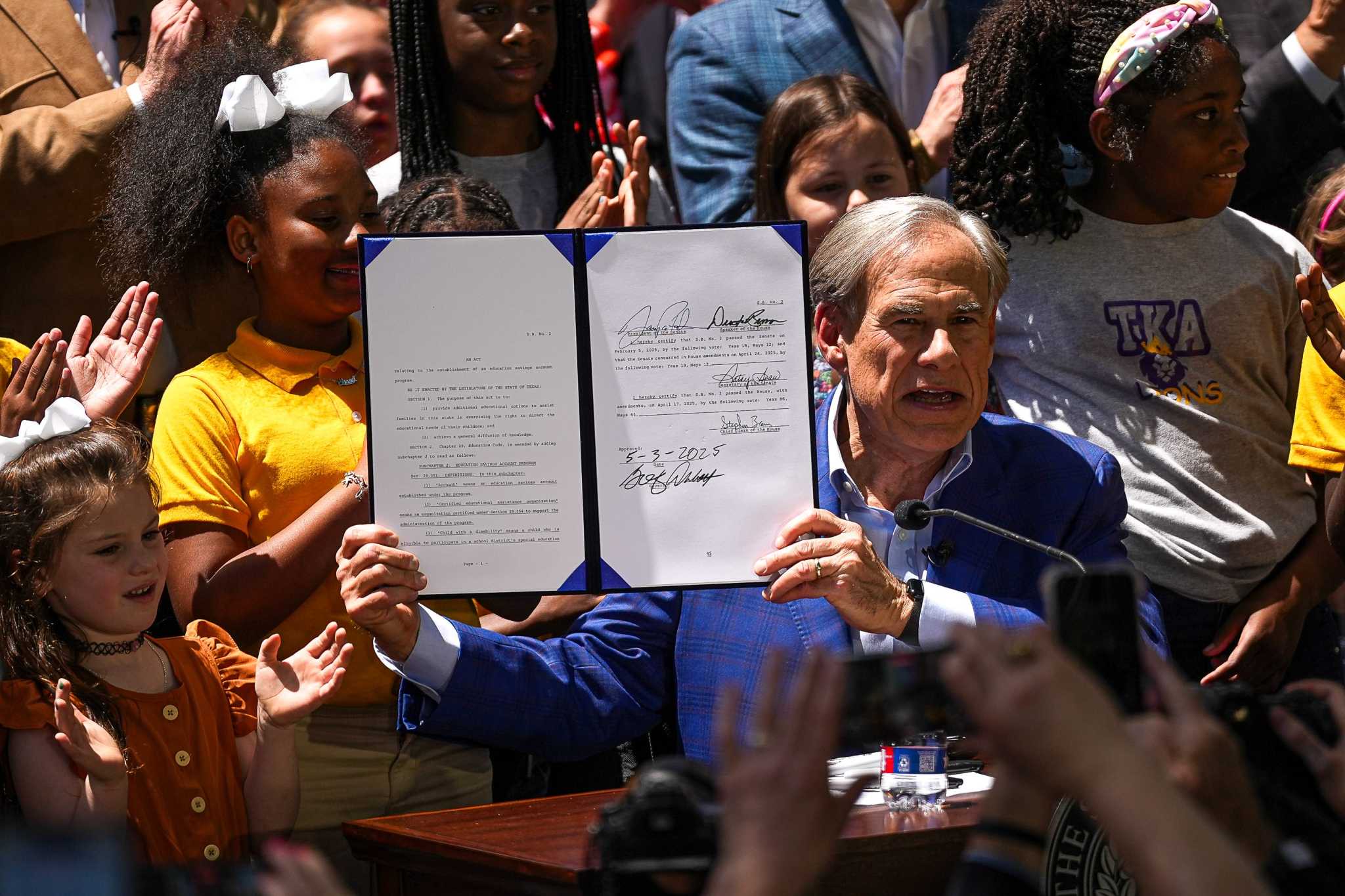politics
Gov. Greg Abbott Seals Key Victories in Texas Legislative Session
The Republican governor notched victories on school choice and other legislative priorities. He's emerging in a strong position ahead of 2026.
Published May 25, 2025 at 10:02am by John C. Moritz

Texas Governor Greg Abbott, now in the second half of his third term, is barreling toward the June 2 closing of the 2025 legislative session with his most impressive list of victories of his long political career. This session has turned on its head the long-running truism that Texas is a weak-governor state.
A Republican who was first elected in 2014 and twice comfortably reelected after that, Abbott was able to push to, and perhaps even stretch past, the constitutional limits of his executive office with his responses to the COVID-19 emergency of 2020 and an unprecedented surge of unauthorized immigration beginning early in 2021.
But the legislative sessions, both regular and special, of 2023 demonstrated that executive muscle alone was insufficient for Abbott to fully implement his vision for Texas. Most notably, for all of his cajoling and arm-twisting, the governor was not able to cobble together a majority in the Texas House to enact a plan to offset the cost of private K-12 education.
Abbott's critics labeled such a system "school vouchers." The governor and his supporters called it "school choice."
Regardless of what it was called, the issue laid the groundwork for the legislative success that Abbott has enjoyed since lawmakers convened in Austin beginning Jan. 14. Because Democratic opposition to his school choice aim was deep-rooted and immovable, the governor proved he was not afraid to shed Republican blood to get his way.
Abbott targeted several Republican House members, many of them dependable allies over a broad swath of conservative priorities but who voted against school vouchers, in the 2024 GOP primaries. Most of them went down to defeat. Others opted not to seek reelection.
When the Legislature convened early this year, back-of-the-envelope math suggested school choice would pass, especially since the new House speaker, Dustin Burrows, was open to such proposal. And for some Republican members from rural districts who were still kind of squishy, all they had to do was look at what Abbott (and the millions in campaign funding he spent in the primary) was able to do with their now-departed colleagues.
While Abbott earlier this month signed his coveted school choice legislation into law, the voucher program is not the only item in his 2025 win column.
Less than two weeks after the voucher signing ceremony, Abbott made a show of signing legislation to further protect publicly traded corporations from lawsuits and shield corporate officers from most shareholder claims brought in the state’s new business courts, except in extreme circumstances.
Abbott has also promised more property tax cuts, generous pay increases for public school teachers and to expand judges' discretion to deny bail for suspects charged with such violent crimes as murder, aggravated sexual assault, aggravated kidnapping and other serious offenses.
All are tantalizingly close to the finish line.
Abbott is also poised to continue his streak of victories, unchecked, even after the session ends. But it won't be limited to taking victory laps as he signs his priority bills into law. Because so much legislation tends to hit the governor's desk in the waning days of the session, and having until June 22 to sign or veto bills, Abbott can kill any of the measures he doesn't like without fear that the Legislature will override him.
That's because the session will have ended, and only he has the power to call lawmakers back to work for a special session. Lawmakers filed two measures this session to trim the governor's veto power. One passed the Senate but appears stuck in the muck in the House; the other never got off the ground.
Perhaps the biggest measure of Abbott's success this year will come after all the bills are either signed or vetoed. And that's because the finger on the campaign money-raising pause button comes off.
Abbott, who has made clear that he intends to run for an unprecedented fourth four-year term in 2026, is one of the nation's most prodigious fundraisers, excepting major-party nominees for president.
By way of example, Abbott was not on any ballot in 2024 and yet he still managed to rake in $50 million into his well-stocked campaign account. So, when that pause button was pressed in January, he was sitting on a bankroll of $70 million.
There's no reason to believe that his donors have grown tired of funding his political future. And because money is the main propellant of any campaign, Abbott will start the 2026 cycle in earnest with a strong wind at his back.

